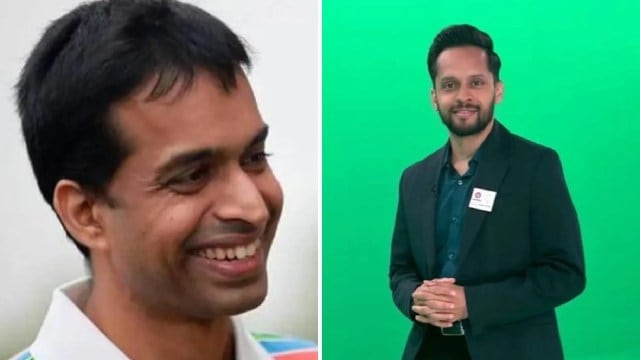Parupalli Kashyap hails Pullela Gopichand’s comment as wake-up call to fill gaps in Indian sporting ecosystem
Recently, National coach of Badminton Pullela Gopichand made a comment asking kids to not take up sports unless from a rich and affluent background.
 Former badminton star Parupalli Kashyap has hailed Pullela Gopichand's comment on Indian sporting ecosystem as a wake-up call. (Credits: Express Archive and P Kashyap Instagram)
Former badminton star Parupalli Kashyap has hailed Pullela Gopichand's comment on Indian sporting ecosystem as a wake-up call. (Credits: Express Archive and P Kashyap Instagram)Indian badminton legend and current head coach of the national team Pullela Gopichand sparked a raging debate with his recent comment about kids from middle-class families not taking up sports.
He said, “I advise parents not to put their children in sports. We are not in a position to offer sports as a career. Unless the children are from rich backgrounds.”
His comments have attracted arguments from both sides with some calling it an accurate representation of the current sporting landscape in the country while some calling it discouraging for the younger kids.
One of his students and 2014 Commonwealth Games champion Parupalli Kashyap has agreed with his coach’s comment and explained why it is not discouraging.
Taking to the social media platform X, Kashyap said,” Gopi sir’s recent remarks about the challenges middle-class families face in pursuing sports as a career resonate deeply with the realities of India’s sporting ecosystem. He’s absolutely right to highlight the lack of a safety net for athletes who don’t reach the top.”
“In a country where success in sports—outside of cricket—rarely guarantees financial security or societal respect, his call for caution is pragmatic, not pessimistic. The middle class, often tethered to the promise of stable jobs and education, risks everything by banking on athletic glory when the odds are stacked against them—less than 1% make it big, and even fewer sustain a livelihood post-career,” the post read further.
Gopi sir’s recent remarks about the challenges middle-class families face in pursuing sports as a career resonate deeply with the realities of India’s sporting ecosystem. He’s absolutely right to highlight the lack of a safety net for athletes who don’t reach the top. In a…
— Kashyap Parupalli (@parupallik) February 22, 2025
Kashyap explained that Gopi’s comment highlights the gaps in the Indian sporting ecosystem and rather than looking at it as a negative comment, it is a wake-up call to fill those gaps to help the Indian athletes.
“Look at the examples he cited: national champions relegated to junior clerk roles or Olympic medalists struggling in dead-end sports quota jobs, facing humiliation rather than honor. India’s infrastructure may be improving, but without robust systems to skill up athletes for alternative careers or ensure dignity in retirement, the dream of sporting success remains a gamble most can’t afford. Gopi sir’s not discouraging passion—he’s urging a hard look at the structural gaps that leave most athletes high and dry. It’s a wake-up call we need to heed,” concluded Kashyap.
































